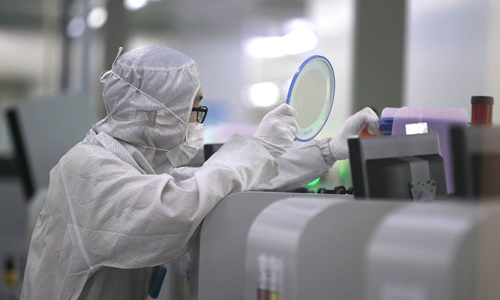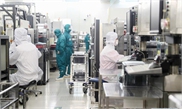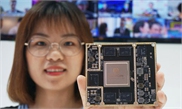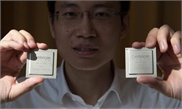
Workers of HC Semitek, a leading Chinese LED chip maker, produce chips at its subsidiary in Yiwu in East China's Zhejiang Province. (Photo: Yang Hui/GT)
Chinese AI chip firm Cambricon, formerly Huawei's AI chip supplier, saw its share price surge by more than 290 percent at opening on its first trading day in Shanghai Monday, indicating Chinese investors' strong confidence in the tech sector.
At Monday closing time, Cambricon's shares had surged from 229.86 percent to 212.4 yuan (about $30), significantly higher than its proposed price of 64.39 yuan per share.
Cambricon was founded in 2016 by Chen Tianshi, a researcher at the Chinese Academy of Sciences, China's top research agency. Key strategic investors of Cambricon include Lenovo Group, the world's largest personal computer maker, and Chinese smartphone maker OPPO.
Huawei, once Cambricon's biggest client and a key source of revenue, has become a competitor after it decided to use AI chips designed by its own chip arm HiSilicon, Cambricon said in its prospectus.
The company's net losses hit 1.18 billion yuan in 2019, expanding from 41 million yuan a year earlier, although its revenues had more than tripled to 443.9 million yuan, Cambricon said.
At the end of 2019, Cambricon has 680 Research and Development personnel, accounting for 79.3 percent of the total number of its employees.
Industry insiders said market expectations for the firm are high given its sales performance and peak competition in the AI chip sector, noting that only with accelerated development could the firm be "worth its share price."
Moreover, Cambricon's funding gap is still relatively large even after the fundraising, as 3-3.6 billion yuan will still be needed to invest in chip research and development involving five to six chip products, Zhang Xiaorong, Director of the Cutting-Edge Technology Research Institute, told the Global Times.
Cambricon's share sale comes as China intensifies efforts to develop its own chip industry amid a US chip ban on Huawei, creating urgent demands for the country to develop an independent semiconductor sector.
China's biggest chip maker, Semiconductor Manufacturing International Corp (SMIC), listed on the Shanghai STAR market, saw its share price surge 245 percent on July 15. .
However, the chip-making industry is not only cash-burning but also time-consuming, said industry analysts, noting that the path to self-reliance still faces major barriers such as a still comparatively lower rate of material localization and lower demand globally amid the global economic contraction.
Global Times



